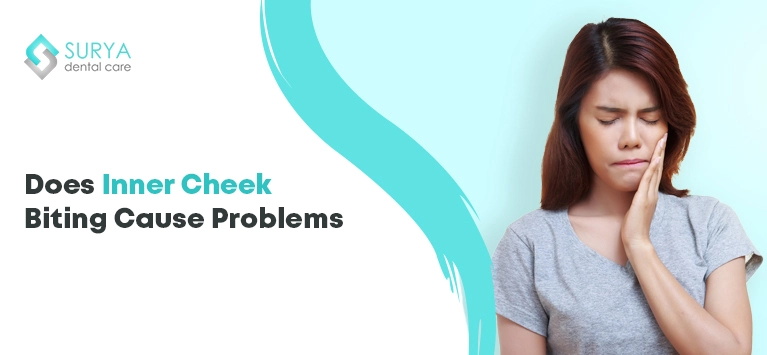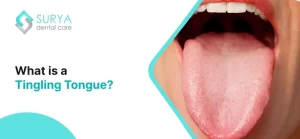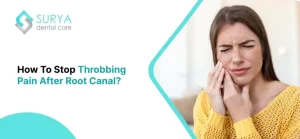Inner Cheek Biting also known as morsicatio buccarum is a typical accident that occurs commonly during eating fast or speaking while eating. But cheek biting is very harmful when you are doing it regularly. A study showed how much people face inner cheek biting in sleep and do it without consciousness. No worries, this blog will be an eye-opener as most people bite their inner cheeks without knowing what they are doing and how dangerous it is.
What Is Inner Cheek Biting?
Inner cheek Biting is a problematic human behavior where repetitive biting of the inner cheek causes pain and some serious issues. Chronic cheek biting can become a bad habit and even a body-focused repetitive disorder.
Why do I keep accidentally biting the inside of my cheek?
Accidentally biting the inside of your cheek can occur for several reasons. Common causes include distractions while eating, such as talking or watching TV, leading to careless chewing. Additionally, stress and anxiety can trigger compulsive biting behaviors, often categorized as body-focused repetitive behaviors (BFRBs), similar to nail biting. Misalignment of teeth or jaw issues may also contribute to frequent accidental bites. If this happens regularly, consulting a dentist is advisable to explore potential dental solutions.
Inner cheek biting is a painful behavior categorized into five different types
- Accidental Biting: Accidental Biting is normal. It happens to everyone accidentally without the intention of doing it due to some actions we do in a hurry.
- Regular accidental Biting: Biting the inner cheek regularly by accident may happen due to your teeth alignment, which needs to be consulted with a dentist to check your teeth alignment.
- Cheek Biting while sleeping: Biting while sleeping should be avoided by using soft guards in your teeth. This helps to prevent contact between teeth and the mouth.
- Habitual biting: Regular biting of your inner cheek is one of the behaviors that can cause problems for you, which should be consulted and avoided to prevent it from becoming a repetitive disorder.
- Body-focused repetitive disorder(BFRD): Inner cheek biting becomes BFRD, where you intend to cause damage to your own Body by knowing the pain.
What Causes Cheek Biting
Chronic cheek Biting is caused by two major emotional and environmental factors apart from medical causes, including improper alignment of upper and lower teeth (Malocclusion) and poorly made dental crowns.
Emotional and Environmental Factors that cause cheek Biting
- Stress
- Anxiety
- Depression
- Eating too fast
- Malocclusion (Misaligned teeth)
- Bruxism(Teeth grinding)
- Nervous situations
- Distractions
- Unexpected small accidents
- Boredom
- Speaking while eating
- Emotional overload
Dangers of Cheek Biting
In common, cheek biting occurs in most people at some point in time without their consciousness. But some have the habit of Cheek bite, a compulsive activity that causes pain and damages the inner lining of the cheek buccal mucosa. Other dangers that occur due to cheek biting are
- Cuts and Canker sores
- Tissue Damage
- TMJ Disorders
- Psychological Effects
- Hyperkeratosis
1. Canker sores
When you continuously hurt the soft inner lining of your cheek, it forms white or red lesions. These lesions can also increase the risk of infections, as they create openings for bacteria to enter the Body. The reaped biting in the same region could go deep and cause painful canker sores inside the mouth, making it difficult to consume solid spicy foods.
2. Tissue Damage
Constantly biting the insides of your cheeks can damage the inner lining tissue (oral mucosa) and result in mouth ulcers or chronic inflammation. Repetitive biting on the same region can damage the tissue and view dark red or white from surrounding tissues.
3. Temporomandibular Joint (TMJ) Disorders
The constant pressure exerted on the temporomandibular joint while cheek biting can contribute to TMJ disorders. The person who bites the inner cheek TMJ Symptoms may include jaw pain, difficulty chewing, and clicking or popping sounds when opening or closing your mouth.
4. Psychological Effects
As we see, cheek biting is often associated with stress, anxiety, or nervousness. The repetitive nature of this habit can further exacerbate these feelings and impact your mental health by creating a cycle of negative emotions.
5. Hyperkeratosis
The Human Body usually produces more cells in the injured area due to repetitive biting of the same region in the oral mucosa. The more cells are produced, the more hyperkeratosis can be caused. Hyperkeratosis is a risky condition that makes our skin thicker and tougher than the other regions.
How to stop cheek Biting
You must identify the trigger that makes you bite your cheek to stop this repetitive behavior.
- If you are biting your cheek regularly while eating, consult a dentist or orthodontist to treat your improper teeth alignment.
- If Emotional and environmental factors are your causes, consult with health providers to get safeguards for the biting that prevent the inner lining of the mouth from further damage.
- A person with a biting disorder or habitual biting of the inner cheek should go under counseling to learn the dangers of inner cheek biting and get the treatment option tailored for the individual.
Some typical daily routines that help in avoiding inner cheek-biting
- Chewing sugar-free gum
- Avoid boredom activities
- Breathing exercises
- Relaxation exercise
Inner Cheek Bite treatment options
Some standard treatment options that can help you to get a cure from one-time accidental inner cheek bite without causing serious damage to the inner lining of the mouth are
- Rinsing with salt water
- Aloe Vera gel
- Honey
- Avoid Spicy and acidic Foods
Individuals affected by cheek biting as a compulsive behavior should consult with dentists to get tailored treatment options and therapies.
Takeaway
Inner cheek bite is common and not a severe issue when it occurs as an accident without our subconscious until it changes into one of our habits or even BFRD(Body Focused Repetitive disorder). Consulting with dentists helps to identify triggers for inner cheek biting and save yourself from the harmful repetitive habit.







